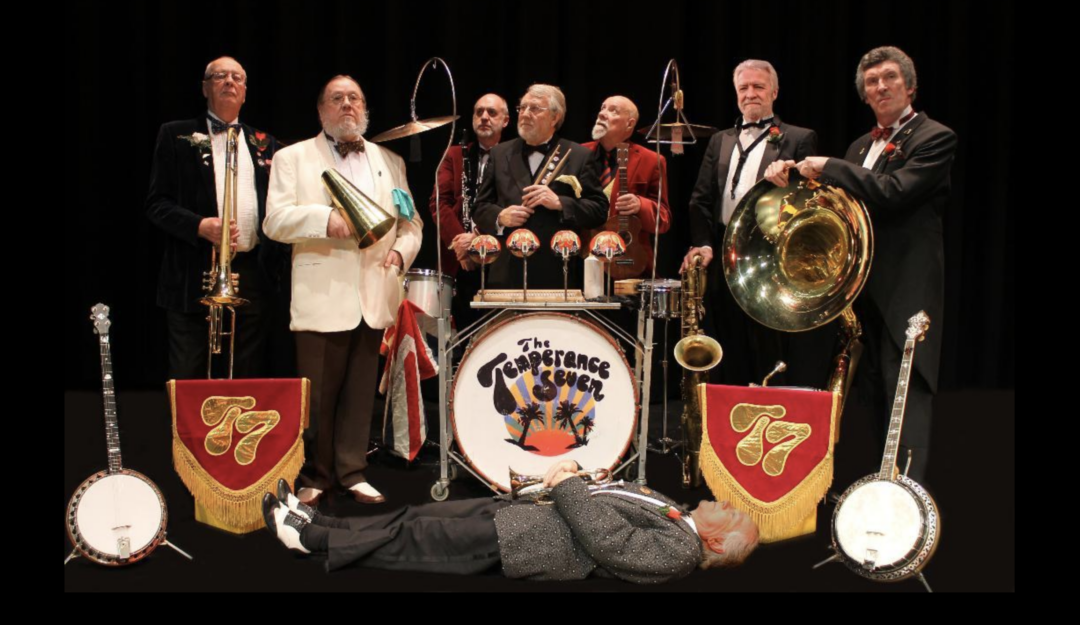The next local ‘Sussex Jazz’ Concert – featuring The Temperance Seven – will be on 3rd December at the Herstmonceux Village Hall. There is more background information on the website: www.sussexjazz.co.uk

The Temperance Seven was founded at Christmas 1955 by students at the Chelsea School of Art, though the band mythologized its foundation as dating from 1904 at the fictitious Pasadena Cocoa Rooms, Balls Pond Road, North London. The three founder members were Paul McDowell (who originally played trombone), Philip Harrison (who originally played banjo) and Brian Innes (drums). Gradually the band evolved into a nine-piece ensemble with a light-hearted and humorous performing style, although they were all serious musicians. The name “Temperance Seven” was suggested by Douggie Gray, of the Alberts fame. The Alberts were cult figures in the art scene in the mid 1950s and were forerunners of the sort of humour that became Monty Python. The Temperance Seven was a subtle play on words – the number seven being “one under the eight”. That there were nine members or “one over the eight” implied intemperance.
In 1960, they recorded “Ukulele Lady” with vocal refrain by Peter Sellers, produced by George Martin. It was featured on Parlophone PMC 1131, a 12-inch album called Peter and Sophia (Loren).
In 1961, the Temperance Seven achieved national fame with the number one hit “You’re Driving Me Crazy”, arranged by Frank Skinner and produced by George Martin. It was quickly followed by “Pasadena”, which reached number 4 in the UK Singles Chart. They toured the UK widely that year, often in shows promoted by their manager Ralph Peters and their performances acquired a set routine beginning with the last few bars of “Pasadena” (which became their signature tune) and ending with the stirring strains of the “Gaumont-British News”. By the summer of 1961 their fame was such that they appeared at the London Palladium for a two-week top of the bill performance. This was arranged by Ralph in combination with an appearance at that year’s Royal Variety Performance.
The original Temperance Seven were dissolved in the mid 1960s, but the band was resurrected in the latter part of that decade by drummer Dave Mills, who had replaced Brian Innes in 1966 and led the band for several years, firstly as The New Temperance Seven, and was instrumental in arranging their appearances in Hong Kong and Bahrain, where he eventually settled to be replaced by Ian Howarth. The band continued to perform with new personnel and, from time to time, original members made guest appearances. During the 1980s, Chris Hook took over leadership of the band. The personnel have not changed since that time and the band continues to work around the UK. Many members of the original band reunited for a BBC Radio programme about the group in 2003.

Recent Comments